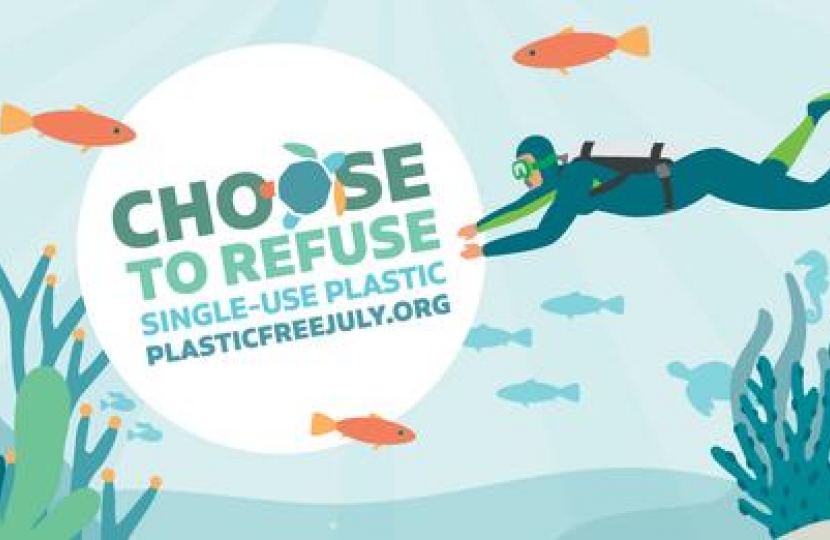
This month has been designated Plastic Free July; a global effort to raise awareness and share ideas for how all of us can use less plastic and reduce pollution.
We have all seen and heard a great deal about the huge environmental damage caused by single-use plastics, especially in the world's oceans,
By 2017, 8.3 billion tonnes of plastic had been manufactured – equivalent to the weight of 25,000 buildings the size of the Empire State Building in New York. Without action to cut demand, it is estimated this will grow to 34 billion tonnes of plastic by 2050: more than 4 times the current level.
It is thought that Plastic Free July has inspired around 326 million participants in 177 countries to make a small change that has collectively made a massive difference to our communities.
Richard Fuller, MP for North East Bedfordshire, said:
By now, most of us are aware that plastic can wreak havoc on our marine environment and degrade our most precious habitats for centuries. It is important that we find ways to tackle this man-made, and easily avoided, problem and begin the process of clearing the damage already caused.
The government is taking bold action to tackle our plastic usage and waste but the best solution to the problem of plastics is a combined and sustained effort by all of us. There are small steps we can all take to reduce our plastic waste and I would encourage you to get involved and visit www.plasticfreejuly.org for ideas on small ways in which you can take up the challenge.
The Government recently created a 25-Year Plan to Improve the Environment setting plans to reduce, reuse, and recycle more plastic than we do now in England. The overall target is to eliminate all avoidable plastic waste over the life of the Government's 25 Year Environment Plan.
The UK’s world-leading ban on microbeads will help stop potentially billions of tiny pieces of plastic from entering the aquatic environment every year. As well as this, 15.6 billion fewer bags have been handed out to shoppers by the seven main retailers since the introduction of the plastic bag charge in 2015. A ban on the supply of plastic straws, excluding those needed for medical purposes, drinks stirrers and cotton buds also came into force in October 2020.
Ministers are also looking at the possibility of introducing a deposit return scheme for drinks containers and asking those who make waste to take more responsibility for items that can be harder or costly to recycle, including polystyrene, electrical goods and batteries.
Finally, from April 2022 a Plastic Packaging Tax will be paid by manufacturers and importers of plastic packaging that contains less than 30 per cent recycled plastic.
